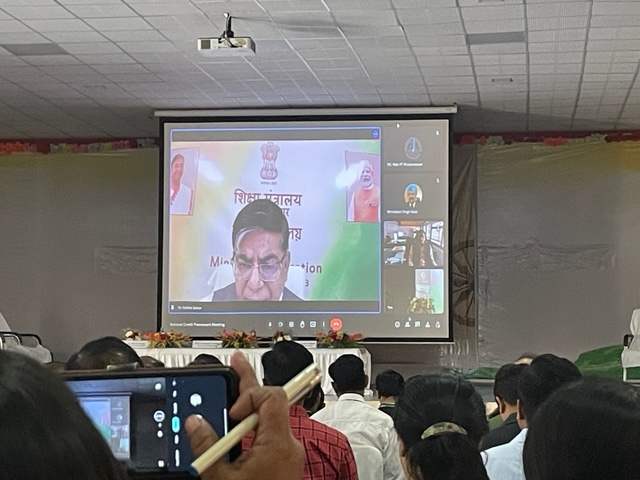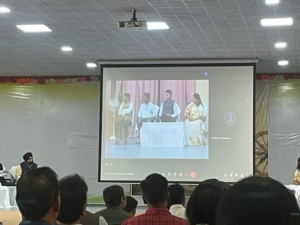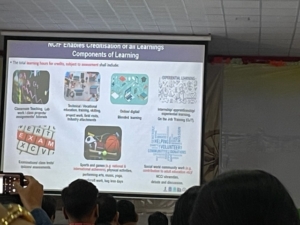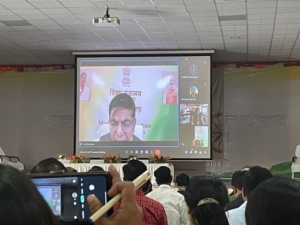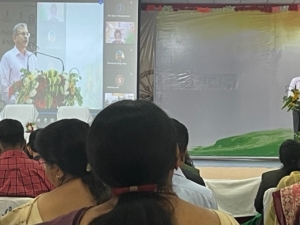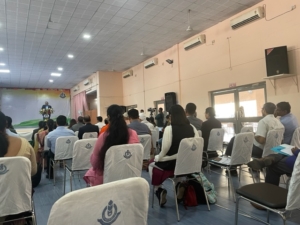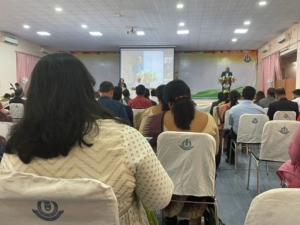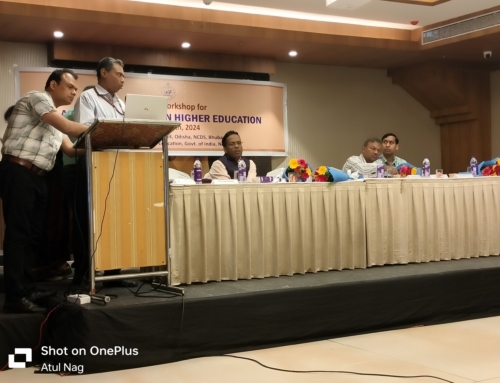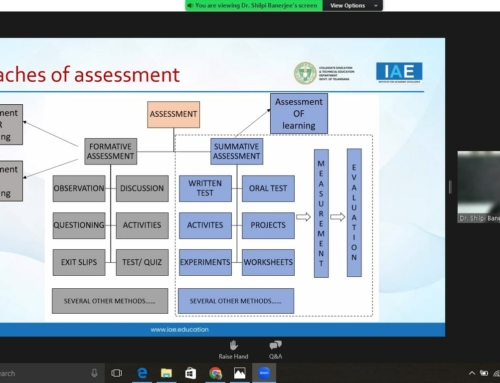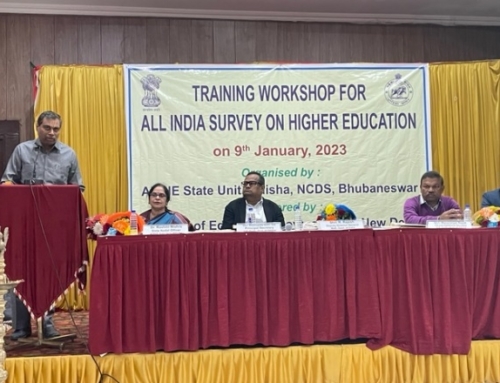The National Education Policy (NEP), 2020, is a reflection of the aspiration of the students, teachers and citizens. The NEP is in sync with the culture and heritage of our nation while assimilating global knowledge and perspective. To realise the intent and objectives of the National Education Policy, the National Credit Framework (NCrF) has been jointly developed by a High-Level Committee constituted by the Government with members from UGC, AICTE, NIOS, CBSE, NCERT, Department of Higher Education, Department of Education, DGT and Ministry of Skill Development. In order to collect feedback, suggestions from all the stakeholders, the Indian Institute of Technology across the country were entrusted with the responsibility of conducting awareness workshops on the same.
The Indian Institute of Technology Bhubaneswar has organized a workshop on 24th November 2022 which was attended by the Internal Quality Assurance Team Members of KISS-DU comprising Prof. Jugal Kishore Mishra, Director (IQAC), Dr. Disha Bhatt, Dy. Director (IQAC) and Mr. Atul Nag, Associate Professor.
The Welcome Address was delivered by Professor S. Karmalkar, Director IIT, BBSR, Nodal Person Professor P.V. Satyam. The Inaugural Address was delivered by Hon’ble Minister, MoS, MoE, Sri Dr Subhas Sarkar and Dr Neena Pahuja, Executive Director NCEVT delivered a presentation on NCrF. The Dean of Academics Professor N. C Sahoo spoke about the modus operandi followed at IIT, BBSR and the Panel Discussion was chaired by team members from MoE, MSDE, CBSE, UGC, AICTE, NCVET, NCERT, and Director IIT and Dean Academics, represented IIT BBSR. Professor Karmalkar delivered the Closing Remarks and Dr Srinivas Karanki proposed a Vote of Thanks.
NEP’s focus on outcome-based education, vocational education, credit transfer, alternative schooling, assessment techniques, Digilocker, ABC, extensive use of technology, focus on values, professional ethics and morals, social harmony, skilling, multiple entry and multiple exits, flexible curriculum, gaming technology and simulator-based learning were some of the key points discussed in the workshop.

